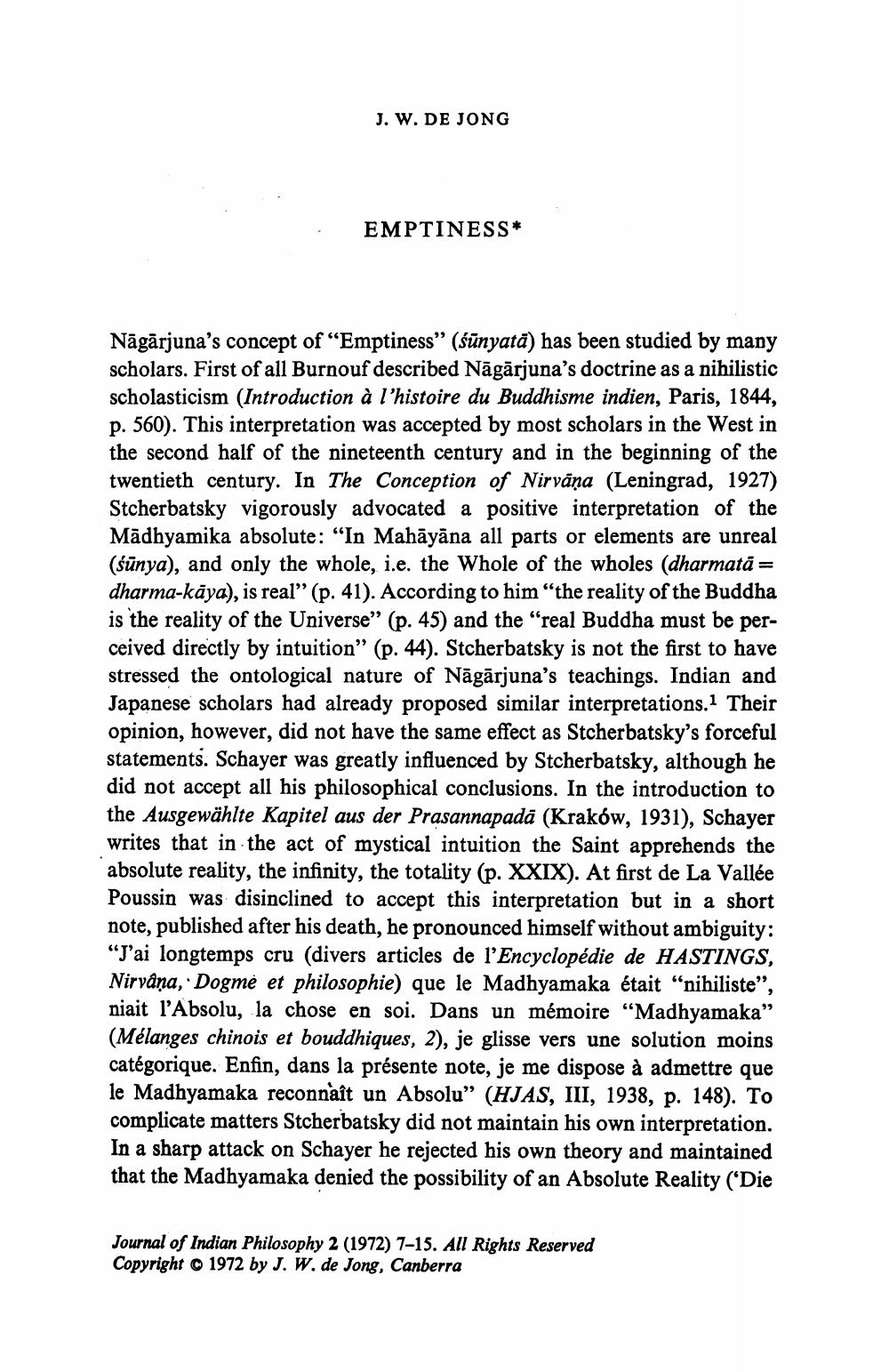Book Title: Emptiness Author(s): J W De Jong Publisher: J W De Jong View full book textPage 1
________________ J. W. DE JONG EMPTINESS* Nāgārjuna's concept of "Emptiness” (šūnyatā) has been studied by many scholars. First of all Burnouf described Nāgārjuna's doctrine as a nihilistic scholasticism (Introduction à l'histoire du Buddhisme indien, Paris, 1844, p. 560). This interpretation was accepted by most scholars in the West in the second half of the nineteenth century and in the beginning of the twentieth century. In The Conception of Nirvana (Leningrad, 1927) Stcherbatsky vigorously advocated a positive interpretation of the Madhyamika absolute: "In Mahāyāna all parts or elements are unreal (śünya), and only the whole, i.e. the Whole of the wholes (dharmată = dharma-kāya), is real” (p. 41). According to him “the reality of the Buddha is the reality of the Universe” (p. 45) and the "real Buddha must be perceived directly by intuition" (p. 44). Stcherbatsky is not the first to have stressed the ontological nature of Nāgārjuna's teachings. Indian and Japanese scholars had already proposed similar interpretations.1 Their opinion, however, did not have the same effect as Stcherbatsky's forceful statements. Schayer was greatly influenced by Stcherbatsky, although he did not accept all his philosophical conclusions. In the introduction to the Ausgewählte Kapitel aus der Prasannapadā (Kraków, 1931), Schayer writes that in the act of mystical intuition the Saint apprehends the absolute reality, the infinity, the totality (p. XXIX). At first de La Vallée Poussin was disinclined to accept this interpretation but in a short note, published after his death, he pronounced himself without ambiguity: "J'ai longtemps cru (divers articles de l'Encyclopédie de HASTINGS, Nirvana, Dogmé et philosophie) que le Madhyamaka était “nihiliste", niait l'Absolu, la chose en soi. Dans un mémoire "Madhyamaka" (Mélanges chinois et bouddhiques, 2), je glisse vers une solution moins catégorique. Enfin, dans la présente note, je me dispose à admettre que le Madhyamaka reconnaît un Absolu” (HJAS, III, 1938, p. 148). To complicate matters Stcherbatsky did not maintain his own interpretation. In a sharp attack on Schayer he rejected his own theory and maintained that the Madhyamaka denied the possibility of an Absolute Reality (“Die Journal of Indian Philosophy 2 (1972) 7-15. All Rights Reserved Copyright © 1972 by J. W. de Jong, CanberraPage Navigation
1 2 3 4 5 6 7 8 9
